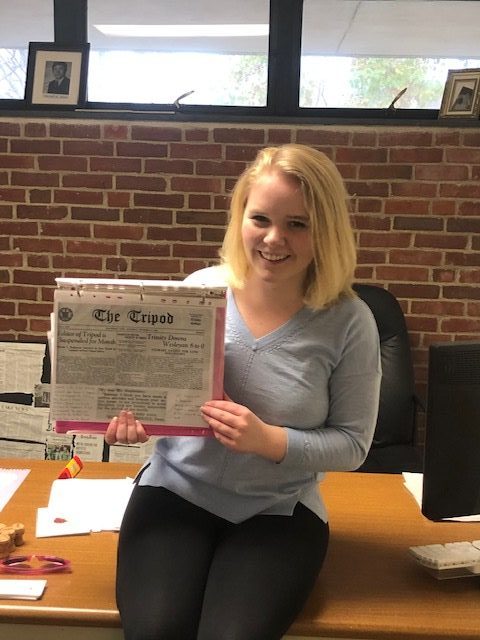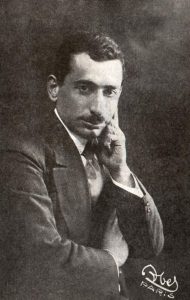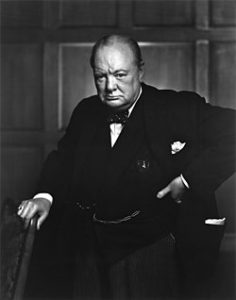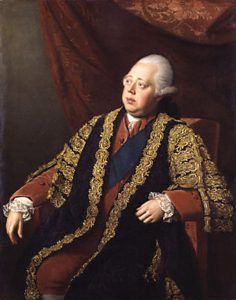Home » European History
Category Archives: European History
History Majors Awarded Prizes At 71st Honors Day Ceremony
Elizabeth M. Sockwell ’21 won the D.G. Brinton Thompson Prize In American History. Ms. Sockwell was awarded $500.00 with the prize. The prize is awarded to a thesis considered by the Department to be an excellent one in the field of American history.
Brendan W. Clark ’21 and Corey T. Cheung ’21 won the Miles A. Tuttle Prize. Mr. Clark and Mr. Cheung were awarded $700.00 with the prize. The prize is awarded to a senior whose thesis considered by the Department to be an excellent one any the field of history.
Brendan W. Clark ’21 won the George B. Cooper Prize In British History. Mr. Tuckwell and was awarded $300.00 with the prize. The prize is awarded to a senior majoring or minoring in History considered by the Department to have done excellent work in British history.
Brendan W. Clark ’21 and Tanuja A. Budraj ’21 won the Ferguson Prize In History. Mr. Clerk and Ms. Budraj were awarded $500.00 with the prize. The prize is awarded to a senior history major who has the best portfolio of essays. Essay portfolios consisted of three essays and a cover letter.
The George J. Mead Prize In History for Scholarship In Non-English Sources, the George J. Mead Prize in History, and the Gerald A. McNamara prize were not awarded this year.
Congratulations to Our Class of 2020 History Thesis Writers!
By Brendan W. Clark ’21
Editor; History Major
Congratulations to four of the History Department’s senior majors who presented the culmination of a year’s worth of research and study this past Friday!
Despite the difficulties which beset the end of their work from the coronavirus crisis, Gillian Reinhard ’20, Aidan Turek ’20, William Tjeltveit ’20, and Connor Struyk ’20 presented their research to the department’s faculty and friends via thoughtful presentations on Zoom.
Reinhard’s thesis, “Orientalist Opera: Western Perceptions of the Other in the Early Twentieth Century,” focused on the premiere of Giaccomo Puccini’s Turandot at the Royal Opera House in London during the 1920s. Reinhard relied on a variety of primary source material and newspaper coverage of the premiere and sought to examine the place and extent of Orientalism in the British imagination. Drawing on scholarship from noted British historians Robert Bickers, Sarah Cheang, and John MacKenzie, Reinhard also argued for a greater recognition of the opera as serving the imperialist ambitions of the British Empire. You can read more about Reinhard and her thesis, which were profiled by History@Trinity in November, here.
Senior Thesis Profile: Aidan Turek Examines Albert Speer and Nazi Apologists
By Brendan W. Clark ’21
Editor; History Major
Aidan Turek ’20 is the President’s Fellow in Political Science and a senior thesis writer in the History Department. History@Trinity’s Brendan Clark spoke with Aidan to ask him a few questions about his thesis and his experience with the History Department.

1. Describe your research topic in two minutes or less (let’s say 200 words or less).
My thesis is a study of Albert Speer, the famed Nazi architect, designer, and industrial genius who was Hitler’s right-hand man and a possible successor. Specifically, I’m examining his life and legacy through the lens of biographization—how historical memory is constructed and deconstructed. Speer was intimately involved in the functioning of the Third Reich, and yet at Nuremberg he successfully presented himself as an apolitical technocrat, and in doing so escaped the executions that befell his colleagues. In his hugely influential autobiography, Speer basically set the tone for Nazi apologists, manipulating his own life and historical fact to prove his own innocence. While more recent biographies have gone back and seriously questioned his life, to this day Speer still guides the discourse surrounding him, and thus Nazism more generally. My goal is to reopen some of the areas neglected by Speer and his biographers, to explore interesting facets of his life that reveal the true extent of his moral culpability and the criminal nature of his actions. I think that researching Speer allows me to delve into fascinating ethical questions while also exploring and illuminating just how history gets constructed.
2. What specific aspects of your academic career at Trinity and your personal historical interests led you to select this topic?
This actually all started after watching a YouTube video about one of Speer’s projects. I figured myself an amateurish expert in World War Two, but Speer’s name had only come up in passing, and none of it dealt with his unique contributions to fascism. And then there’s the fact that he died so recently—in 1981—which got me wondering how Nazis could stick around and have a say for that long. Personally I was drawn in by this muddle of philosophical and historical trends, but I gained quite a bit from Trinity as well. I have an avid interest in political science and German studies, and Albert Speer and his life have actually come up quite a bit. I’ve encountered scholars in classes that discuss the direct historical background, like Weimar Germany’s political culture, alongside literature on the authoritarian capacity of architecture. I was also fortunate enough to travel to Berlin with Trinity to get a hands-on look at what I’ve been researching.
Senior Thesis Profile: Gillian Reinhard Talks Turandot and Tripod
By Brendan W. Clark ’21
Editor; History Major
Gillian Reinhard ’20 is the President’s Fellow in History, the Department’s inaugural Chatfield Fellow, and a senior thesis writer. History@Trinity’s Brendan Clark sat with Gillian to ask her a few questions about her thesis and her experience with the History Department.


- Describe your research topic in two minutes or less.
I am looking at the 1926 opera Turandot, by the Italian composer Giacomo Puccini. The first part of my thesis concerns how different cultures portrayed exoticism and embraced Edward Said’s concept of Orientalism. I am applying what I have learned in the first chapter to look specifically at how British audiences perceived Puccini’s opera when it arrived in London a year later, again from the perspective of Orientalism. The relationship between Britain and China is a unique one, with a long, complicated history, and I am hopeful that an analysis of this opera can shed light on this relationship.
- What specific aspects of your academic career at Trinity and your personal historical interests led you to select this topic?
Firstly, I have studied Mandarin Chinese since middle school and had the opportunity to study abroad in Shanghai during the fall of my junior year. My experience abroad truly shed light on the concept of Orientalism in the West. Also, I read Orientalism, by Edward Said, in my first-year seminar “Arabian Nights” with Associate Professor of History Zayde Antrim. That text has shaped much of my academic work. I decided to look at it through the lens of opera, as it has always been a quirky interest of mine.
A Conversation with Professor of History, Emeritus, Borden Painter
By Brendan W. Clark ’21
Editor; History Major

Professor Borden W. Painter, Jr. ’58, H’95, is an alumnus of Trinity and a former Professor of History, interim Dean of the Faculty, and twice interim President of Trinity College.
Painter’s time at Trinity as a student included participating in football and swimming as well as majoring in history. Painter characterized the importance of “good, close relationships” with the faculty while at Trinity as a major asset to the college. Painter was also active in the Chapel and felt that, ultimately, Trinity was a “great choice” for his undergraduate studies.
“Killing Order”: Talaat Pasha’s Telegrams and the Armenian Genocide–A Lecture by Professor Taner Akçam

By Brendan W. Clark ’21
Editor; History Major
Taner Akçam is a Professor of History and the Robert Aram, Marianne Kaloosdian, and Stephen and Marian Mugar Chair in Armenian Genocide Studies at Clark University. He was one of the earliest Turkish academics to acknowledge the Ottoman commission of the genocide.
The Armenian Club of Trinity and the History Department welcomed Professor Taner Akçam, Professor of History and the Robert Aram, Marianne Kaloosdian, and Stephen and Marian Mugar Chair in Armenian Genocide Studies at Clark University to Trinity on Monday, March 19th. Professor Akçam spoke on his newest book, Killing Orders: Talat Pasha’s Telegrams and the Armenian Genocide. He discussed the significance of the telegrams and their role in affirming the Ottoman governments involvement in many of the events underscoring the Ottoman Empire’s perpetration of the Armenian Genocide.
Akçam began by addressing the continuing denials of the Turkish government, who deny the occurrence of the Armenian Genocide itself. This argument, argued Akçam, rests on the supposition that there was never an official decision by Ottoman authorities to exterminate Armenians. To augment their claims, Akçam cited the two strategies pursued by the deniers: that they have consistently hidden or destroyed the bulk of documentary evidence and that they continue to deny the existence of certain available documents.
“Great Pleasure and Advantage”: Richard Toye and the Parliamentary Oratory of the Rt. Hon. Sir Winston Churchill
By Brendan W. Clark ’21
Editor; History Major

The Trinity College History Department had the pleasure of receiving a visit from Richard Toye, Professor and Department Head of History at the University of Exeter, on Thursday, February 22. Professor Toye is a historian of Churchill and has a distinguished career, having written a number of publications including Lloyd George and Churchill: Rivals for Greatness, Churchill’s Empire: The World That Made Him and the World He Made, The Roar of the Lion: The Untold Story of Churchill’s World War II Speeches, and Rhetoric: A Very Short Introduction.
In his lecture, Toye challenged us to consider other factors that influenced the decisions of Churchill’s rhetoric. One of the first factors Toye examined was the structure of the House of Commons chamber itself. In 1941, the house was bombed during the Blitz and a fervor developed over whether or not the chamber should be reconstructed. Toye described the importance of the original design to Churchill, noting that Churchill found the American rotunda design “fatal to democracy.” The intimacy of the chamber and its ability to facilitate the conversational style, which Churchill himself advanced, was critical to the Parliamentary tradition within Britain.
The Parliamentary Practice of the “Putting Out of the Wig”
By Brendan W. Clark ’21
Editor; History Major
I wrote this not as an assignment but for publication here after being inspired by the mention of this practice in my Parliamentary Debate class with Professor Jennifer Regan-Lefebvre. What started as a search for an answer became an exhilarating six-hour review through the annals of British parliamentary history.

On the evening prior,[1] the question was posed in a general sitting of History 270: Parliamentary Debate, a course duly held under the tutelage of one Dr. Jennifer Regan-Lefebvre, a professor of British History, inter alia, at Trinity College, as to the ambiguity of the nature of Parliamentary tradition surrounding the “putting out of the wig,” as it is so-called in the Parliamentary tradition.[2] Ergo, it stood within my earnest desires and in keeping with the general station of my inquisitive character to endeavor to establish, through scholarly review and research, the history of this unique practice. It is my hope that the forthcoming may provide an answer to this most perplexing and under-researched historical oddity in Parliament.
Bankwitz Lecture: “From Privy to the Statistical Archive”
Editor; History Major
The annual C.F. Bankwitz Lecture this year featured Barbara Ann Naddeo from the City College of New York presenting “From the Privy to the Statistical Archive: Political Information, Science, and the Formation of the Territorial State in the Age of Enlightenment, 1700—1815.”
Herein, I examine Professor Naddeo’s arguments regarding Galanti’s significance in his time whereas my colleague Ms. Meagher will touch upon Galanti’s role as a source of historical information.
Naddeo’s treatment of the implications and novelty of famed Italian economist and geographer Giuseppe Maria Galanti (1743–1806), who worked in the Kingdom of Naples during the aforementioned period, proved enlightening especially in its espousal of concepts on epistemology.
Bankwitz Lecture: Galanti as a Historical Source
Editor; History Major
On Thursday, November 16, the Trinity College History Department held its Annual Philip C. F. Bankwitz Lecture. This year’s speaker was Professor Barbara Ann Naddeo from the City College of New York who gave a lecture entitled, “From The Privy To The Statistical Archive.” In this lecture, Professor Naddeo cited Giuseppe Maria Galanti in making her argument that statistical writings in late eighteenth century Italy played a large role in the establishment of Italy as a modern political player. Before she made her argument, Professor Naddeo went into depth on the importance of Galanti’s works as a historical source. Giuseppe Maria Galanti was born in 1743 and died in 1806, Having lived his life in the Kingdom of Naples in Italy. During his lifetime he published five volumes of a text called The Geographical and Political Description of the Sicilies. The work includes census-like information about the region at the time as well as detailed maps. The census information translates to political statistics both then and now. The information indicates what the people of the time were like both professionally and socially as well as what the rulers of the time were interested in knowing about their people since it is they who ordered the gathering of many the statistics Galanti uses.
(more…)


